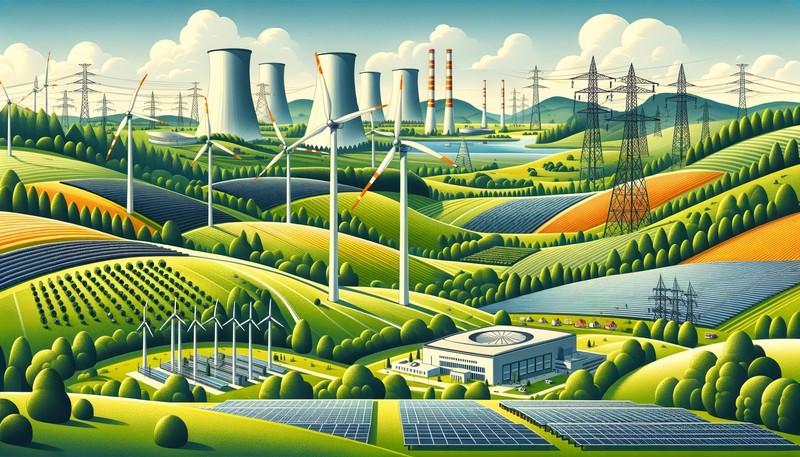Electricity market in Germany
Energy sources in Germany
Germany's energy sector encompasses a diverse array of sources. The nation has been progressively transitioning towards renewable energy.

Renewable energies, especially wind and solar, play a major role in the energy landscape, showcasing Germany's dedication to sustainability and ecological consideration.
Renewable energy leadership
As a frontrunner in renewable energy, Germany has invested extensively in wind and solar power. These sources have been increasingly integrated into the national power grid.
Wind power, both onshore and offshore, along with solar energy, forms the backbone of Germany's renewable energy sector.
Nuclear and coal energy
Despite the focus on renewables, nuclear and coal sources are still part of Germany's energy mix. These sources, however, are being phased out in line with environmental goals.
The German government has set timelines for the decommissioning of nuclear power plants and is steadily reducing reliance on coal.
EU electricity market integration
Germany is an integral part of the EU electricity market. This integration facilitates cross-border energy exchange, enhancing supply security and market efficiency.
The interconnectivity with neighboring countries allows for a more robust and resilient energy network, adapting to fluctuating demands and supply.
Energy transition and policy
The German energy transition, or 'Energiewende', is a key policy initiative. It aims to increase renewable energy use and reduce carbon emissions.
This transition is not just a technological shift but also involves regulatory, economic, and social dimensions, reflecting Germany's holistic approach to energy policy.
Challenges and future outlook
Germany faces challenges in balancing energy demands, environmental goals, and economic considerations. The transition to renewables is complex and multifaceted.
Looking forward, Germany is poised to continue its role as a leader in sustainable energy practices, setting a precedent for other nations to follow.
